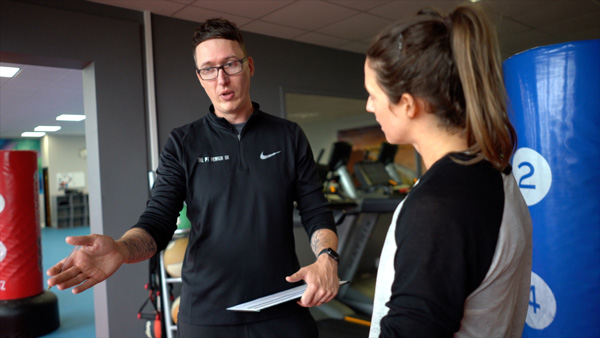
Which is The Best Personal Training Qualification (UK)


This is a question that comes up a lot online.
In my opinion, the best PT qualification is the one that best fits your learning style, timeframe and ambition.
It also must be regulated, offer you the latest content in the UK and help you to succeed in the industry, all of which I’ll come to in a second, but when you ask this question on social media, you tend to get people say –
“I did my course with XYZ…”
“Check out Joe Bloggs Courses, they’re the best…”
But they were the “best course” for that person and by asking this question, you tend to come away with more questions than answers!
Which is The Best Personal Training Qualification (UK)
So, here are 5 things to help you find The Best Personal Training Qualification for YOU.
1. Leading Awarding Bodies UK
Each Course Provider is linked to an awarding body, whose role it is to set the qualification standards and content. The top two in the UK, which you may have already heard of, are Active IQ and YMCA Awards. You may also want to ask if the courses are governed by UK Active and Ofqual. Ask a provider this and that will show you really know your stuff.
2. CIMSPA and REPS accredited
CIMSPA, the Chartered Institute for the Management of Sport and Physical Activity, and REPS, the Register of Exercise Professionals are professional bodies that provide support within the industry. In 2020 they joined forces with CIMSPA acquiring REPS.
3. Personal Training Course Content
People tend to state that PT course content is pretty standard across the board, that it just gives you the bare minimum needed to enter the industry, but I beg to differ. We use Active IQ as the awarding body for our course delivery, as they update their courses regularly, but it is also how that content is put across to the student.
Understanding the content to pass the course is one thing, knowing how to implement it in real life is another.
4. Personal Training Course Delivery
There are a few different types of course delivery out there – classroom based, home study, on-line or blended, which is a mix of the three. Depending on your learning style, your time frame and even your location can depend on which courses will suit your needs.
Classroom delivery can be anything from 4 to 10 weeks, generally on a two or three day a week schedule and some that are full-time. Here everyone tends to work at a similar pace and have set deadlines to complete the course, mainly because as you finish there is another course starting the following week.
With home study you’re sent everything needed to complete the course and left to your own devices to get work submitted by a set date. On-line can be very hit and miss, if it is fully on-line, expect to pay extra for physical workbooks, submission of work and practical assessment days with a Tutor/Assessor. Not always but there tend to be hidden costs, so please make sure you check this before you enrol.
Blended learning is, how we deliver our courses, a good fit for an all-round student. You have the flexibility of home study, the on-line support from your Tutor and the face-to-face sessions as and when needed. Plus, no strict time frame in which to complete that can be completed around current employment.
5. On-going Support
A lot of providers over the years have marketed their courses with such lines as “Become your own boss,” “Earn upwards of £60k a year,” “Work your own hours” and so on. But they don’t give you the support to do this. To be a Personal Trainer you need a lot more in your locker than just a sound knowledge of the body.
Most PT’s leave the industry within 2 years, the main reason being, because they can’t attract enough clients to make it a worthwhile living. The course providers don’t generally teach you any sales, marketing or business aspects – which is crucial to your growth as a trainer.
You need to go with a provider that is there for you long term, giving you on-going support as and when needed and not just one that has an outdated unit in the manual about business.
So, to recap –
1. Make sure that the provider is linked to one of the top awarding bodies which is both UK Active and Ofqual governed.
2. Ask if the course is CIMPSA (and REPS) accredited.
3. Question how the provider helps you put the content you study into real life practice.
4. Decide which course delivery model will be best for your needs, timescale and learning style then search for a course that meets your needs.
5. On-going support is the most important thing for your long-term success. You can be an amazing training with all the knowledge in your head, but if you can sell yourself in a gym full of clients your business will struggle.
If you’ve found this article helpful, or would like to get more hints and tips about courses and how to make it in the fitness industry head over to our Instagram page – www.instagram.com/theptmentoruk


Karl Muir
Karl is the Company Owner of The PT Mentor UK. Having qualified as a Personal Trainer himself almost 20 years ago, he's been helping others step into the fitness industry since 2010 by delivering the latest courses and on-going support to help them succeed.